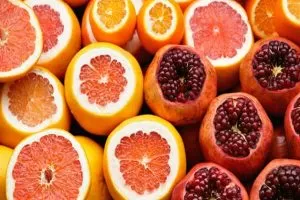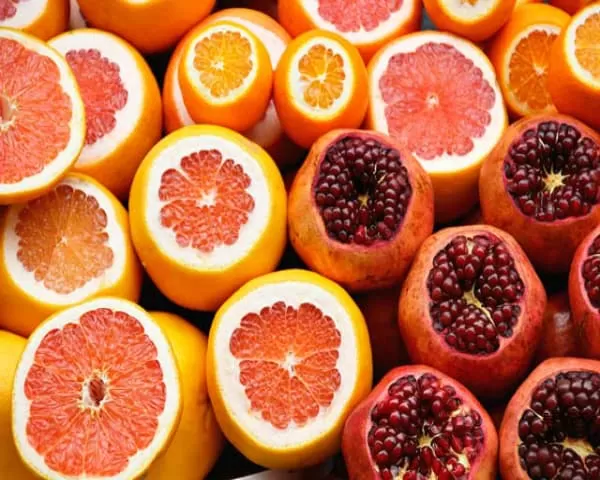List of Winter Fruit Names
In each season of the year there is a special and different fruit, where you can enjoy its extremely unique and pleasant flavors. Most of these fruits are recommended to be consumed during the months corresponding to their optimal point of maturation instead of others, so that people can enjoy them in their maximum splendor, guaranteeing all the benefits and properties that they contain.
Normally, people believe that summer is when the trees offer more fruits, however, during the winter, a great amount of fruits can be found, abundant in its majority the citric fruits, which contribute a good dose of vitamins and minerals to the body. Strawberries, bananas, papayas, oranges, pineapples, guavas, coconuts, apples, kiwis, limes, avocados, quinces, tangerines, lemons, grapefruit, persimmons and grapes.
Benefits of Winter Fruits
- Winter fruits are an excellent source of vitamins and minerals, capable of avoiding any disease that may occur, allowing the human body to remain healthy and without constant colds at this time.
- Winter fruits are essential for daily consumption during this season, not only because they provide the best taste but also because they provide a significant amount of vitamins C, which protects the immune system most of the time.
- Winter fruits provide the body with a high dose of B-complex vitamins, which makes them special for the nervous system; on the other hand, they usually provide vitamins A which help keep people rejuvenated and free of cardiovascular diseases.
- The fruits that are produced in winter, are able to contribute to the stomach health, in the same way, they contain fatty acids and omega 3, necessary for the general health of the body.
Characteristics of Winter Fruits
- One of the main characteristics of winter fruits is that they contain a high amount of vitamins A, which help the process of cell renewal, while providing vitamins B and C, capable of protecting the nervous system and preventing blood clotting.
- Next, they are characterized for containing potassium and fiber, which will help in a great way to regulate the digestion. Winter fruits are excellent and antioxidants, so they improve vision, the body’s defenses and the repair of tissues and bones.
- Winter fruits are also characterized by their main nutrients in tannins, which have astringent and anti-inflammatory properties, achieving to fight colitis directly and effectively.
- Winter fruits are representative for their high content of antioxidants called lycopene, which help prevent certain colds and some types of cancer, such as stomach, esophagus, oral and breast cancer.
- Winter fruits are ideal because they contain a substance called beet, which is an essential folic acid in women’s reproductive years. On the other hand, they provide a high dose of K vitamins, indispensable for the coagulation of the blood.
Recommended Winter Fruits for Cancer
Winter fruits, besides being main sources of both soluble and insoluble fiber, carbohydrates and proteins, are perfect and ideal as antioxidants, which help to fight free radicals in a guaranteed way, keeping different types of cancer away from the body.
In general, winter fruits contribute to the body with carotenoids, which help to exert an antioxidant action, thus preventing premature cellular aging. Likewise, they prevent arteriosclerosis and act in a guaranteed way against any possible effect of malignant tumors.
You must always remember that free radicals are components that want to be placed in the human body, causing serious damage in the future, such as terrible prostate cancer, breast cancer or oral cancer, so it is always advisable to include the fruits of the winter within the balanced food system so that they do not run risks later.
Winter Fruits Good for the Stomach
Winter fruits are usually included in almost all diets with balanced and intense nutrition, due to their high value contribution of healthy fats and calories, which provide the necessary energy to keep people active during the day. However, due to its acid or citric composition and its high values in fat, the fruits of the winter can cause pains, burns or infections in the stomach. So if people do not want to suffer from these troublesome stomach pains, the ideal is to consume it in small quantities or look for other options to choose from.
Consumption of Winter Fruits as Diuretics
Winter fruits are usually characterized by being able to increase urinary secretion, eliminate any fluid retention through urine and irritating inflammations that occur in the kidney, which gradually stops working.
Winter fruits are mostly diuretic, helping this organ, like the kidney, to have a longer life process. Winter fruits will always be recommended for people who retain too much fluid in the body.
Winter fruits are often implemented within the balanced food system, those people who tend to suffer from overweight, since most of them have hormonal problems and in some cases, are prone to rapid stomach indigestions.
Good Winter Fruits as Laxatives or Astringents
Nowadays, some specialists recommend winter fruits as an excellent natural laxative, since they serve in a direct way to fight all kinds of stomach pain, mainly constipation, even, in its majority, they are usually ideal for people with serious intestinal problems.
Normally, winter fruits are characterized by a high dose of fibers, being its composition almost 90% in water, which help accelerate the intestinal transit, so they are favorable for the formation of feces, increasing satiety and controlling the metabolism.
The following are the winter fruits that are usually natural laxatives: Dates, plums, apricots, pears, kiwis, melons, strawberries, oranges, lychees, quinces, apples, avocados, plus cherries, among others.
Seasonal Winter Fruits
Within the winter fruit season calendar you will find the following:
- Dates: Available in October, November, December and January.
- Cherries: Available in November, December, January, February and March.
- Raspberries: Available in August, September, October and November.
- Apricots: You can consume them in January, February, March and April.
- Kiwis: They are perfect to consume in February, March, April, May, June and July.
- Lychees: You can find them available in October, November, December and January.
Topics Related to Fruits in ALPHAPEDIA
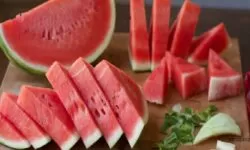
WATERMELON: Benefits, Properties and Contraindications
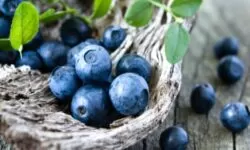
BLUEBERRIES: Benefits, Properties and Contraindications
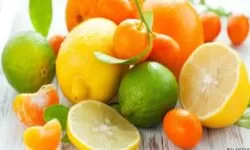
SOUR FRUITS: What They Are and Their Benefits for the Body
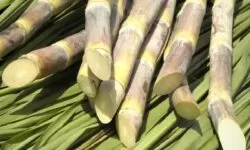
SUGAR CANE: Properties, Benefits and Risks

AVOCADO: Origin, Properties, Meaning and Benefits

COCONUT: Benefits, Properties and Contraindications
Health and Wellness Issues at ALPHAPEDIA
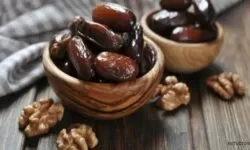
DATES: Benefits, Properties and Contraindications
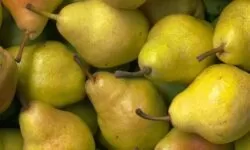
PEAR: Properties, Benefits and Types. Astringent or Depurative ?

COCONUT: Benefits, Properties and Contraindications

BLUEBERRIES: Benefits, Properties and Contraindications
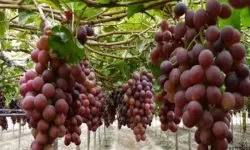
💚 THE GRAPE: Properties, Origin and Benefits
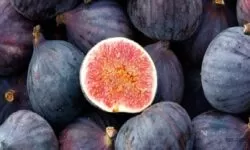
FIG: Benefits, Types and Properties
Other Topics of Interest in ALPHAPEDIA

FREE PERSONAL GROWTH COURSE

ENVIRONMENT DEFINITION

FREE MASTER DEGREE IN INFORMATION TECHNOLOGY MANAGEMENT

FREE MUSIC COURSE FOR CHILDREN

FREE URBAN PLANNING COURSE

FREE BACHELOR DEGREE IN LITERATURE
Winter Fruits Image
